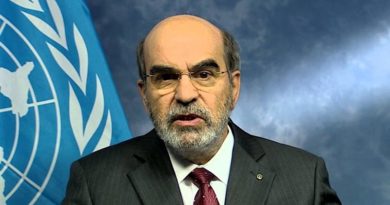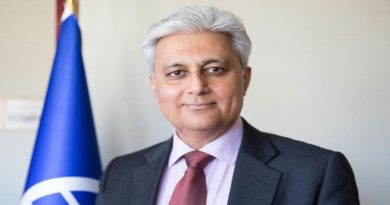WaterAid urges leaders to spend $1.2bn to provide water, others in hospitals
As G20 finance ministers meet this week in Rome to discuss how they will build back from the pandemic, WaterAid is urging global leaders to commit to new funding of at least $1.2 billion, to ensure all hospitals and clinics, particularly within the world’s poorest countries, have clean water, decent toilets and proper handwashing facilities.
Since the onset of Covid-19, rich countries have spent significant sums, an average of nearly 10% of their GDP, and a total of $20.6 trillion, on stimulus packages to help bolster their economies and to recover from the pandemic. The sum needed, $1.2 billion, equates to just thirty minutes-worth of the past year’s spending. This investment would bring these vital frontline defences against future pandemics to all healthcare facilities in the poorest nations.
In Nigeria, millions of people are at higher risk of COVID-19 and other infectious diseases as 96% of all healthcare centres in Nigeria lack access to basic water, sanitation and hygiene services – putting the lives of doctors, nurses, midwives and patients at risk. Providing doctors, nurses and patients with somewhere to clean their hands is one of the most effective ways to halt the spread of disease.
Whilst vaccines and therapeutics are urgently needed, lives are being put at risk every day because the very basics of disease prevention are being ignored. An essential injection of finance by the G20 would prevent millions of avoidable deaths through infections and diseases. Not only has research shown that washing hands with soap helps reduce the spread of coronaviruses by one third but it would also help curb the growth of antimicrobial resistance as antibiotics are too often used in unclean health facilities as a ‘quick fix’ in place of proper hygiene – Which is contributing to an increasingly alarming situation as antibiotics lose their power to fight infections.
According to the World Health Organization, investment of this nature would take just one year to pay for itself and produce savings for every dollar invested thereafter. But an ever-growing debt crisis is preventing poorer countries from being able to invest into basic water services, with some countries paying billions of dollars in international debt service each year.
Evelyn Mere, Country Director, WaterAid Nigeria, said: “Spending at least £1.2 billion on water, sanitation and hygiene for healthcare centres is a no-brainer investment, both saving lives now and also protecting against future pandemics and the devastation they cause. This sum equates to just thirty minutes-worth of what has been spent over the last year on Covid response packages. Yet it could change everything for the millions who have no option but to seek care from the 50 per cent of health care facilities in the poorest countries which don’t have clean water.
“We must find the money needed as a matter of urgency, to make sure all healthcare facilities in the poorest countries have clean water and soap before another pandemic hits. If frontline health workers can’t wash their hands, keep patients clean or have somewhere decent to go to the toilet, a hospital is not a hospital at all – it’s a breeding ground for disease.”



